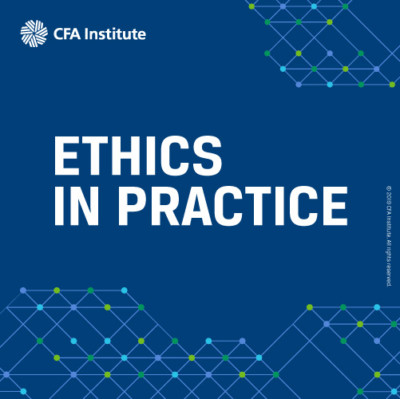Ethics in Practice: Climate Protests. Case and Analysis–Week of 29 July
How did you do evaluating this week’s (29 July) case? Check out the analysis below.
Case
Simpson is a portfolio manager employed by a large global investment bank, managing an investment fund restricted to environmental, social, and governance (ESG) friendly investments. Outside of work, he participates in civil disobedience demonstrations organized by the Extinction Rebellion, a sociopolitical movement that uses nonviolent resistance to protest against climate breakdown, biodiversity loss, and ecological collapse. Simpson is arrested on charges of unlawful assembly, impeding public transit, and disorderly conduct at several demonstrations held in the financial district of the city where he works. He is ultimately convicted of several criminal offenses. Simpson has signed a standard employment contract with the bank that allows them to terminate the contract of any employee who is convicted of a criminal offence. Under the CFA Institute Code of Ethics and Standards of Professional Conduct (Code and Standards), Simpson’s actions
- violate the Code and Standards because he has violated his employment contract with the bank.
- do not violate the Code and Standards because he is engaged in conduct promoting the ultimate benefit of society.
- violate the Code and Standards because he is arrested for misconduct in the financial district.
- do not violate the Code and Standards because his conduct is consistent with the mandate of the fund he manages.
- none of the above.
Analysis
This case relates to what constitutes professional misconduct. CFA Institute Standard I(D): Professional Misconduct prohibits CFA Institute members from engaging in any professional conduct involving dishonesty, fraud, or deceit or from committing any act that reflects adversely on their professional reputation, integrity, or competence. Generally, Standard I(D) is not meant to cover legal transgressions resulting from acts of civil disobedience in support of personal beliefs because such conduct does not reflect poorly on the member’s or candidate’s professional reputation, integrity, or competence. The fact that Simpson is arrested in the financial district is not a sufficient nexus to his professional activities to render his actions a violation of the Code and Standards.
The Code of Ethics requires members to promote the integrity and viability of global capital markets for the ultimate benefit of society. But Simpson’s climate protests are not related to the global capital markets. Misconduct with the supposed intent of benefiting society would not be shielded by the Code of Ethics. It is also irrelevant that Simpson’s climate protests are somewhat in line with his professional activities in managing an ESG fund. Finally, Simpson’s arrest does not seem to be an automatic violation of bank policies. Although Simpson’s employment contract gives the bank the option of firing him for criminal activity, the bank can apparently use discretion in retaining employees depending on the nature and circumstances of the conviction. Furthermore, the Code and Standards are not automatically violated with every violation of an employer’s employment policies, unless the violations relate to underlying conduct addressed in the Code and Standards. In this case, choice E is the best response.
This case relates to a question submitted to the CFA Institute Ethics Help Desk.
Let us know what you think of Ethics in Practice by taking this short survey.
Have an idea for a case for us to feature? Send it to us at [email protected].
More About the Ethics in Practice Series
Just as you need to practice to become proficient at playing a musical instrument, public speaking, or playing a sport, practicing assessing and analyzing situations and making ethical decisions develops your ethical decision-making skills. The Ethics in Practice series gives you an opportunity to “exercise” your ethical decision-making skills. Each week, we post a short vignette, drawn from real-world circumstances, regulatory cases, and CFA Institute Professional Conduct investigations, along with possible responses/actions. We then encourage you to assess the case using the CFA Institute Ethical Decision-Making Framework and through the lens of the CFA Institute Code of Ethics and Standards of Professional Conduct. Then join the conversation and let us know which of the choices you believe is the right one and explain why. Later in the week, we will post an analysis of the case and you can see how your response compares.
Image Credit: ©CFA Institute


Loved your content Jon, this is very well-written and informative. This post was truly worthwhile to read. I wanted to say thank you for the key points you have pointed out as they are enlightening.
Peaceful protests are the greatest weapon of destruction devised by man itself. Protests must be with good intentions and not just a rebellion or resistance to the government.
Check this out Why Do People Protest hope this will help. Thank you.